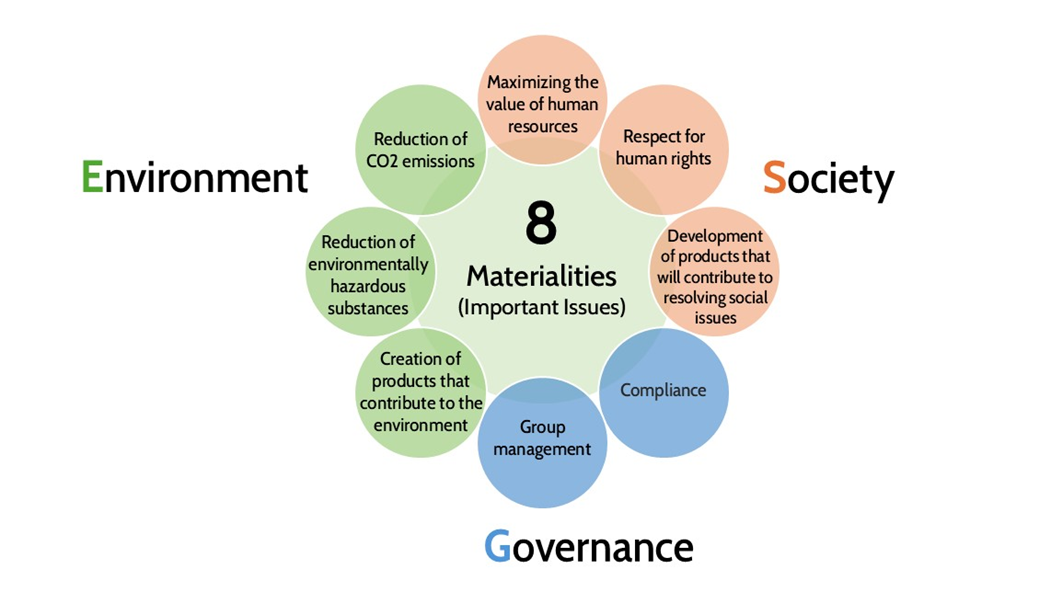Materiality
Materialities (important issues)
NHK Spring has identified the following eight materiality issues, and we will take concrete initiatives for each.

We set targets and KPIs for each materiality and review progress at the Sustainability Promotion Committee, which meets four times a year.

Process for Identifying Materialities (Important Issues)
NHK Spring has identified materialities (important issues) through the following process.
-
STEP1
Identification of issues (candidate materialities)A cross-divisional project involving several related divisions was launched to identify social issues as candidate materialities with reference to the SDGs, GRI standards, various ESG assessments, etc.
-
STEP2
Verification and analysis of importanceThe importance of candidate materialities to the Company is verified and analyzed in light of the business environment in which the Company operates, our Guiding Principles and Corporate Philosophy, and our basic CSR policy.
Interviews are also held with external experts to verify and analyze the importance of the candidate materialities for our stakeholders. -
STEP3
Identification of materialities (important issues)Based on the findings of Step 1 and Step 2, plotting is carried out to identify the materialities (important issues).
-
STEP4
Analysis of materialities (important issues)Among the materialities (important issues) identified in Step 3, "responses to global environmental conservation activities" and "maximization of the value of human resources" are identified as the items with particularly large financial impacts.
-
STEP5
Discussion with top management and approval in the Board of DirectorsFollowing discussion with top management, the materialities (important issues) are approved in the Board of Directors.
Periodic reviews will be conducted from now on.